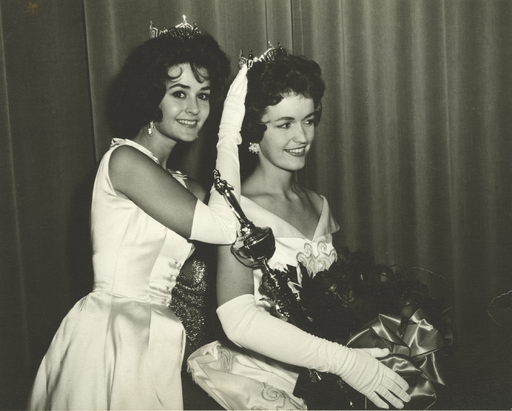\ˈmis\
All of this has been unequivocally good for my wellbeing. But round about the time I started showing up in public rocking visible grey streaks I noticed a sharp uptick in the number of people calling me “Miss.”
Miss??
“Miss” as a form of address is an abbreviated version of “mistress.” Mistress is no mystery: it comes from the Old French maîtresse, which is the feminine form of maistre, or master (which also gave us maestro and maître d’). Maistre comes in turn from the Latin magister, meaning teacher, chief, or director (hence “magistrate”), and magister comes from the Proto-Indo-European *mag-yos, which appears to be the same root that gave us “mega” and (to my delight) “mickle.”
(Interestingly, magister is widely believed to be a constrastive adjective meaning (roughly) “the one who is greater.” Its counterpart is minister, meaning literally “the one who is lesser,” or if you prefer, “the one who serves.” I find this fascinating but it’s probably a different post, and there’s a decent chance my husband the seminarian will get to it first. You’re welcome, sweetie.)
But while masters and maestros and magistrates and ministers and maître d’s all have undeniable clout, the power of a Miss is ambiguous at best. Back in the day there were a few arenas where a Miss had some authority: think of schoolteachers, actresses, and debutantes (who at least had the ability to decide which of their suitors to encourage).* The redoubtable Susan B. Anthony went by “Miss” to her dying day (at which point the New York Times ran an admiring obituary that nonetheless went out of its way to note that “Miss Anthony possessed a figure of medium size [and] a firm but rather pleasing face” and to comment on her fashion choices).
| That was then. Today, the pinnacle of Miss-ish authority seems to be the beauty queen. I realize that achieving such a title requires considerable skill and tenacity, but the power of the tiara and sash is limited (the Trumpian transmogrification of Miss Venezuela into Miss Piggy and Miss Housekeeping is only one example, though an especially egregious one). Honestly, though, any term of address that is routinely prefaced with “Little” is to be viewed with suspicion. |
It’s only men who Miss me—I don’t think I’ve been Missed by a woman since I was a child**—and that tells me that there are gender, age, and power dynamics in play. The waiter’s impulse may be understandable enough on the surface: He can see that I am middle-aged but doesn’t want to acknowledge that by calling me ma’am. So he uses the title appropriate to a much younger woman, thereby allowing us to pretend that I do not look my age. But at the same time, he is serving up a whole lot of implications along with my espresso: that older women are diminished versions of their younger selves, that women’s self-worth depends on their being thought desirable, and that desirability is a matter of being young and available.
To all of which I say, Phooey! I am fifty-one years old. I am respected in my profession, active in my community, capable, funny, and wicked smart. I am neither a debutante nor a beauty queen. I take up space. I ain’t no Miss.
Now I am not about to harangue the poor waiter, who is only trying to do his job. But I am pushing back against the Missification of middle age.
Ma’am will be just fine, thank you. Or mistress. Or maestro.
* I don’t know whether Miss is still in common use among teachers—a quick scan of Grimbert’s high school staff roster turns up mostly Ms-es and a few Mrs-es, plus one Mademoiselle (a veteran French teacher who has stuck with it out of habit).
** The exception has been African American ladies of a certain generation, for whom "Miss + given name" is a term of respect. (And you had BETTER respond with some serious deference yourself or you will be exposed as a lowlife with no home training.)


 RSS Feed
RSS Feed